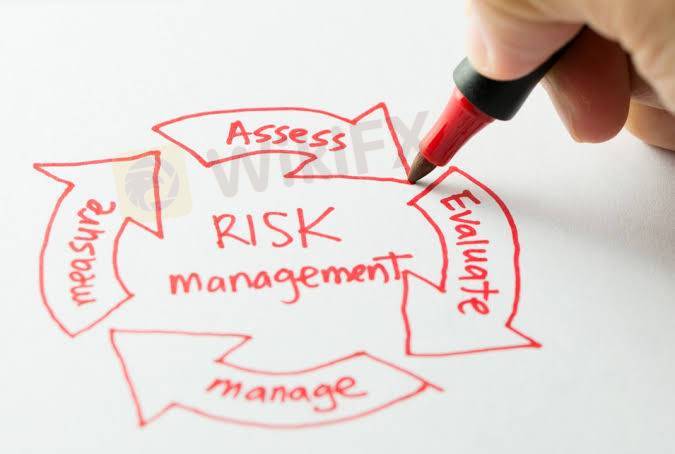2024-11-09 13:34
IndustryHow to Build a Sustainable Budget and Manage Risk
FX Trading: A Simple Guide
Forex trading can be an exciting way to grow your financial portfolio, but it requires a clear strategy and effective budgeting to manage risk and maximize potential profits. Below is a simple guide to help you set up a budget for FX trading.
1. Determine Your Initial Capital
The first step in budgeting for FX trading is deciding how much capital you're willing to invest. This should be money that you can afford to lose, as forex trading can be volatile. Experts recommend starting with a small amount if you're new to the market and gradually increasing your investment as you gain experience. Keep in mind that it's often better to start small and build your portfolio over time than to risk significant amounts right away.
2. Set Risk Management Rules
Risk management is crucial in forex trading, and one of the best ways to manage risk is by setting rules on how much of your capital you're willing to risk on each trade. A commonly used strategy is the 2% rule, which suggests that you should never risk more than 2% of your capital on a single trade. This ensures that even if you face a series of losses, you can still survive the downturn and trade another day. For example, if you have a $5,000 trading account, you should limit your risk per trade to $100.
3. Use Leverage Wisely
Leverage allows you to control a larger position in the market than your initial deposit would typically allow. While this can amplify profits, it also increases potential losses. Budgeting for forex trading means understanding how leverage works and using it responsibly. Many brokers offer high leverage, but be mindful that high leverage means higher risk. Start with lower leverage and only increase it as you gain experience and confidence.
4. Plan for Transaction Costs
Forex trading involves various costs, such as spreads (the difference between buying and selling prices), commissions, and occasionally overnight financing fees (swap rates). When budgeting for trading, it's important to account for these costs, as they can accumulate over time and affect your profitability. Make sure you understand the fee structure of your broker and factor these costs into your overall trading plan.
5. Track Your Trades and Performance
Maintaining a record of your trades and the results is essential for understanding your performance and adjusting your strategy. By tracking wins, losses, and the strategies you used, you can identify patterns and learn what works best for you. This record will also help you stay within your budget and make data-driven decisions.
6. Establish a Profit Goal
While budgeting for trading, it's important to set realistic profit goals. Forex trading isn't a get-rich-quick endeavor. Setting an achievable goal, such as growing your account by a fixed percentage over a few months, allows you to stay focused and disciplined. Avoid setting overly ambitious goals that could lead to risky trading behaviors.
7. Review and Adjust Your Budget Regularly
As you gain more experience in the forex market, you may find that your financial situation changes, or you may need to adjust your strategy. Regularly review your budget, trading strategy, and risk management rules to ensure that you’re on track to meet your goals.
In summary, budgeting for forex trading involves setting a clear plan for your initial capital, using risk management strategies, accounting for transaction costs, and adjusting your approach as you progress. By doing so, you can mitigate risk and optimize your potential for success in the FX market.
For more detailed insights into creating a forex trading budget, consider exploring additional resources from trusted trading education platforms and professional traders.
Like 0

筑梦人
Trader
Hot content
Industry
Event-A comment a day,Keep rewards worthy up to$27
Industry
Nigeria Event Giveaway-Win₦5000 Mobilephone Credit
Industry
Nigeria Event Giveaway-Win ₦2500 MobilePhoneCredit
Industry
South Africa Event-Come&Win 240ZAR Phone Credit
Industry
Nigeria Event-Discuss Forex&Win2500NGN PhoneCredit
Industry
[Nigeria Event]Discuss&win 2500 Naira Phone Credit
Forum category

Platform

Exhibition

Agent

Recruitment

EA

Industry

Market

Index
How to Build a Sustainable Budget and Manage Risk
 | 2024-11-09 13:34
| 2024-11-09 13:34FX Trading: A Simple Guide
Forex trading can be an exciting way to grow your financial portfolio, but it requires a clear strategy and effective budgeting to manage risk and maximize potential profits. Below is a simple guide to help you set up a budget for FX trading.
1. Determine Your Initial Capital
The first step in budgeting for FX trading is deciding how much capital you're willing to invest. This should be money that you can afford to lose, as forex trading can be volatile. Experts recommend starting with a small amount if you're new to the market and gradually increasing your investment as you gain experience. Keep in mind that it's often better to start small and build your portfolio over time than to risk significant amounts right away.
2. Set Risk Management Rules
Risk management is crucial in forex trading, and one of the best ways to manage risk is by setting rules on how much of your capital you're willing to risk on each trade. A commonly used strategy is the 2% rule, which suggests that you should never risk more than 2% of your capital on a single trade. This ensures that even if you face a series of losses, you can still survive the downturn and trade another day. For example, if you have a $5,000 trading account, you should limit your risk per trade to $100.
3. Use Leverage Wisely
Leverage allows you to control a larger position in the market than your initial deposit would typically allow. While this can amplify profits, it also increases potential losses. Budgeting for forex trading means understanding how leverage works and using it responsibly. Many brokers offer high leverage, but be mindful that high leverage means higher risk. Start with lower leverage and only increase it as you gain experience and confidence.
4. Plan for Transaction Costs
Forex trading involves various costs, such as spreads (the difference between buying and selling prices), commissions, and occasionally overnight financing fees (swap rates). When budgeting for trading, it's important to account for these costs, as they can accumulate over time and affect your profitability. Make sure you understand the fee structure of your broker and factor these costs into your overall trading plan.
5. Track Your Trades and Performance
Maintaining a record of your trades and the results is essential for understanding your performance and adjusting your strategy. By tracking wins, losses, and the strategies you used, you can identify patterns and learn what works best for you. This record will also help you stay within your budget and make data-driven decisions.
6. Establish a Profit Goal
While budgeting for trading, it's important to set realistic profit goals. Forex trading isn't a get-rich-quick endeavor. Setting an achievable goal, such as growing your account by a fixed percentage over a few months, allows you to stay focused and disciplined. Avoid setting overly ambitious goals that could lead to risky trading behaviors.
7. Review and Adjust Your Budget Regularly
As you gain more experience in the forex market, you may find that your financial situation changes, or you may need to adjust your strategy. Regularly review your budget, trading strategy, and risk management rules to ensure that you’re on track to meet your goals.
In summary, budgeting for forex trading involves setting a clear plan for your initial capital, using risk management strategies, accounting for transaction costs, and adjusting your approach as you progress. By doing so, you can mitigate risk and optimize your potential for success in the FX market.
For more detailed insights into creating a forex trading budget, consider exploring additional resources from trusted trading education platforms and professional traders.
Like 0
I want to comment, too
Submit
0Comments

There is no comment yet. Make the first one.

Submit
There is no comment yet. Make the first one.